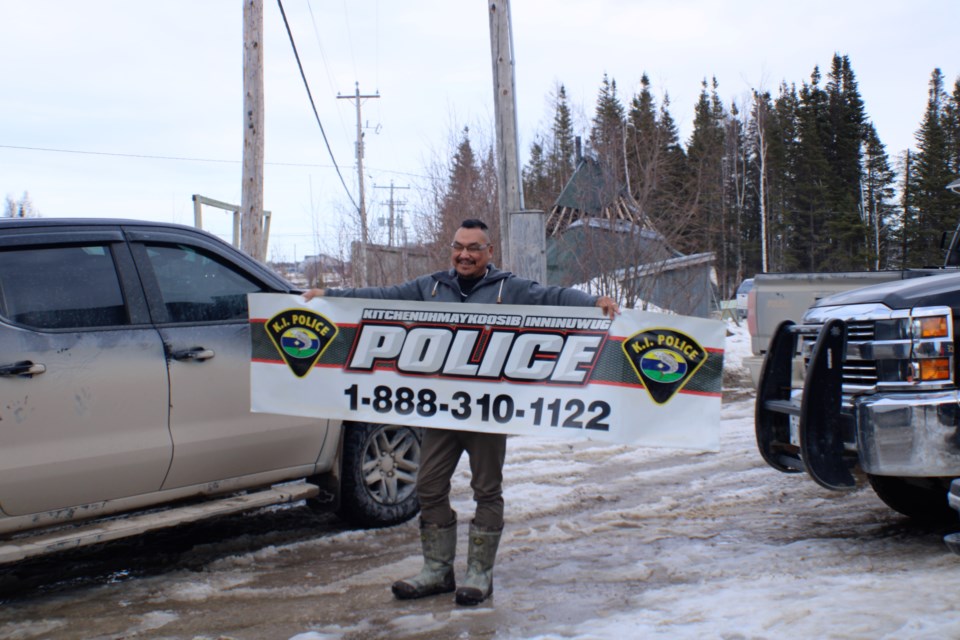KITCHENUHMAYKOOSIB INNINUWUG FIRST NATION — On the eve before becoming an official officer with the Ontario Provincial Police, Barry McKay had mixed feelings about the next chapter of his career.
Kitchenuhmaykoosib Inninuwug First Nation leaders have decided to end the community's standalone police service, and instead amalgamate with the provincial police force.
McKay, a sergeant for the community's police service, described the experience as "almost surreal."
“I’m excited but kind of sad to see our service coming to an end,” said McKay. “It’s like an era at its end for me.”
McKay said, as an OPP officer, he's excited about being able to apply for specialty training.
“Right now, there’s this crisis negotiations course and that’s something I am interested in doing and the other thing I’ve been interested in training for is the ERT [Emergency Response Team] course,” McKay said.
After 21 years of working as a K.I. officer, McKay said the additional training would have been useful, but his on-the-job training has provided him with the experience needed to serve the community.
“There are times where you wish that you had the additional training like when you have to deal with a serious call, but over the years you learn to adapt and you learn what you experience from the job. You apply those experiences,” said McKay.
Chief Donny Morris said the decision to have the community's police service wind down was to allow K.I. officers to obtain the same level of pay and working benefits as their OPP counterparts.
“I know the pay was always an outstanding issue in the past. As you know, when you deal with government things are slow,” Morris said. “So, we might as well go with OPP so they can help them get the benefits, the help, the training.”
“We are grateful that [the OPP has] given the council the opportunity to accept our officers into their ranks.”
Although Morris said there is an open dialogue between the OPP detachment and the council on the way policing will work within the community, Morris has some concerns about how the OPP will respond to the culture.
“What I am afraid of is there are enough cultural sensitivities being taught when they come to the reserve. That’s not something we’ve had to look at yet, but it is something we have to be aware of,” said Morris.
Morris said laws in a First Nation community are different than the laws in a municipality. For example, the Highways Traffic Act does not apply to First Nations communities.
“They got to know you can drive around in a big truck at night with no headlights and no brake lights,” said Morris. “It’s just the way we live.”
Karl Duewel, the OPP's Sioux Lookout detachment commander, said that the transition won’t be much different from the K.I. Police Service.
“This community is really proud of the police officers they have in this community and we have a really good relationship as well from the OPP standpoint with the community,” said Duewel.
"It’s not always been without its challenges, but we have a good working relationship of trust within this community, I hope. And that’s going to get us through these challenges."
Duewel said the OPP offers Indigenous awareness training for their officers, especially, for those officers wanting to work in the remote Indigenous community.
“It’s a priority setting for many of the officers that come in here,” said Duewel. “They must have that training.
McKay said that over the years the OPP has been in the area, the two police services have worked well together. McKay said that he is able to use his lived experiences in the community to help with those OPP officers transition.
“It’s like anywhere else. You have a certain cultural background that is quite different from down south. The other officers ask me how to integrate. When they are out on patrol, how to communicate with the locals. And I just tell them basically just try and build that rapport and understand how they want the community to be policed,” said McKay.
